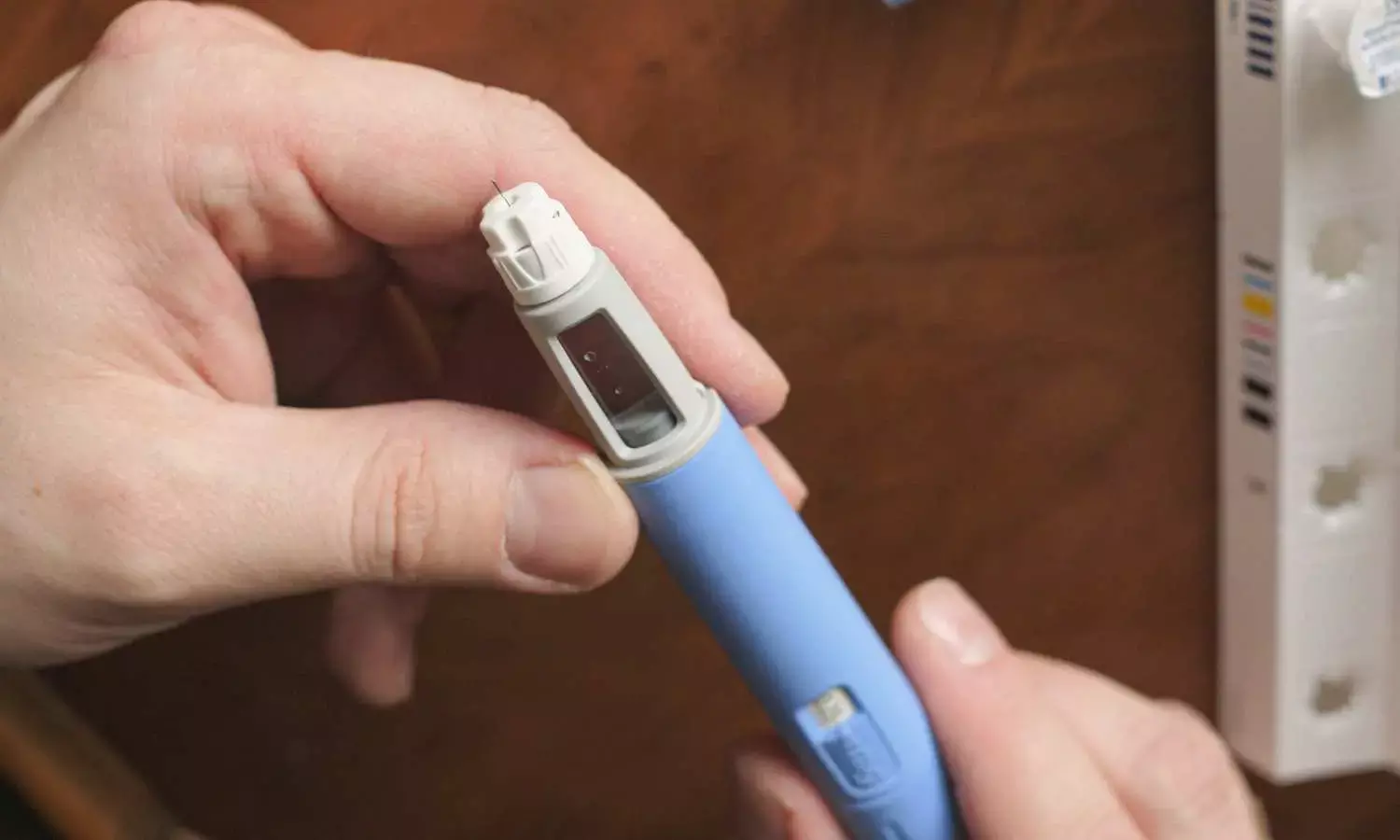- Home
- Medical news & Guidelines
- Anesthesiology
- Cardiology and CTVS
- Critical Care
- Dentistry
- Dermatology
- Diabetes and Endocrinology
- ENT
- Gastroenterology
- Medicine
- Nephrology
- Neurology
- Obstretics-Gynaecology
- Oncology
- Ophthalmology
- Orthopaedics
- Pediatrics-Neonatology
- Psychiatry
- Pulmonology
- Radiology
- Surgery
- Urology
- Laboratory Medicine
- Diet
- Nursing
- Paramedical
- Physiotherapy
- Health news
- Fact Check
- Bone Health Fact Check
- Brain Health Fact Check
- Cancer Related Fact Check
- Child Care Fact Check
- Dental and oral health fact check
- Diabetes and metabolic health fact check
- Diet and Nutrition Fact Check
- Eye and ENT Care Fact Check
- Fitness fact check
- Gut health fact check
- Heart health fact check
- Kidney health fact check
- Medical education fact check
- Men's health fact check
- Respiratory fact check
- Skin and hair care fact check
- Vaccine and Immunization fact check
- Women's health fact check
- AYUSH
- State News
- Andaman and Nicobar Islands
- Andhra Pradesh
- Arunachal Pradesh
- Assam
- Bihar
- Chandigarh
- Chattisgarh
- Dadra and Nagar Haveli
- Daman and Diu
- Delhi
- Goa
- Gujarat
- Haryana
- Himachal Pradesh
- Jammu & Kashmir
- Jharkhand
- Karnataka
- Kerala
- Ladakh
- Lakshadweep
- Madhya Pradesh
- Maharashtra
- Manipur
- Meghalaya
- Mizoram
- Nagaland
- Odisha
- Puducherry
- Punjab
- Rajasthan
- Sikkim
- Tamil Nadu
- Telangana
- Tripura
- Uttar Pradesh
- Uttrakhand
- West Bengal
- Medical Education
- Industry
Semaglutide 1.0 mg tied to 24% reduction in kidney events among people with type 2 diabetes and CKD: FLOW Trial

Denmark: Topline results of the FLOW trial showed a 24% reduction in the risk of kidney disease-related events among patients with type 2 diabetes (T2D) and chronic kidney disease (CKD) with the use of semaglutide 1.0 mg (Ozempic).
The healthcare company Novo Nordisk announced the headline results from the kidney outcomes trial FLOW. The announcement comes after the decision to stop the trial early due to efficacy, which was announced on 10 October 2023, based on a recommendation from an Independent Data Monitoring Committee.
The double-blind trial compared semaglutide 1.0 mg with a placebo as an adjunct to the standard of care for the prevention of progression of kidney impairment and risk of kidney and cardiovascular mortality in patients with T2D and CKD. The trial enrolled 3,533 patients with type 2 diabetes and CKD.
The trial met its primary endpoint by demonstrating a statistically significant and superior reduction in progression of kidney disease and CV and kidney death of 24% for people treated with semaglutide 1.0 mg compared to placebo.
The combined primary endpoint comprised five components measuring the progression of CKD and the risk of cardiovascular and kidney mortality. Both CKD and cardiovascular components of the primary endpoint contributed to the risk reduction. Further, the trial confirmed the superiority of semaglutide 1 mg vs placebo for the confirmatory secondary endpoints.
In the trial, semaglutide 1.0 mg appeared to have a well-tolerated and safe profile in line with previous semaglutide 1.0 mg trials.
"We are very excited about the results from FLOW showing that semaglutide 1.0 mg reduces the risk of kidney disease progression,” Martin Holst Lange, executive vice president for Development at Novo Nordisk, said in the company announcement.
“Approximately 40% of people with type 2 diabetes have chronic kidney disease, so the positive results from FLOW demonstrate the potential for semaglutide to become the first GLP-1 treatment option for people living with type 2 diabetes and chronic kidney disease.”
Novo Nordisk expects to file for regulatory approvals of a label expansion for Ozempic in the US and EU in 2024. The detailed results from FLOW will be presented at a scientific conference in 2024.
FLOW was a double-blind, randomized, parallel-group, placebo-controlled, superiority trial that compared injectable semaglutide 1.0 mg with placebo as an adjunct to standard of care on kidney outcomes for prevention of progression of kidney impairment and risk of cardiovascular and kidney mortality in people with T2D and CKD. Chronic kidney disease was defined as eGFR2 ≥50 and ≤75mL/min/1.73 m2 and UACR >300 and <5000 mg/g or eGFR ≥25 and <50 mL/min/1.73 m2 and UACR >100 and <5000 mg/g.
The trial, conducted in 28 countries at around 400 investigator sites, enrolled 3,533 people. The FLOW trial was initiated in 2019.
The key objective of the FLOW trial is to demonstrate delay in progression of CKD and to lower the risk of CV and kidney mortality through the composite primary endpoint consisting of the following five components:
- onset of persistent ≥ 50% reduction in eGFR according to the CKD-EPI3 equation compared with baseline,
- onset of persistent eGFR (CKD-EPI) < 15 mL/min/1.73 m2,
- initiation of chronic kidney replacement therapy (dialysis or kidney transplantation),
- death from kidney disease
- death from cardiovascular disease
Confirmatory secondary endpoints included MACE (non-fatal stroke, non-fatal myocardial infarction, cardiovascular death), the annual rate of change in eGFR (CKD-EPI), and all-cause death.
Dr Kamal Kant Kohli-MBBS, DTCD- a chest specialist with more than 30 years of practice and a flair for writing clinical articles, Dr Kamal Kant Kohli joined Medical Dialogues as a Chief Editor of Medical News. Besides writing articles, as an editor, he proofreads and verifies all the medical content published on Medical Dialogues including those coming from journals, studies,medical conferences,guidelines etc. Email: drkohli@medicaldialogues.in. Contact no. 011-43720751


